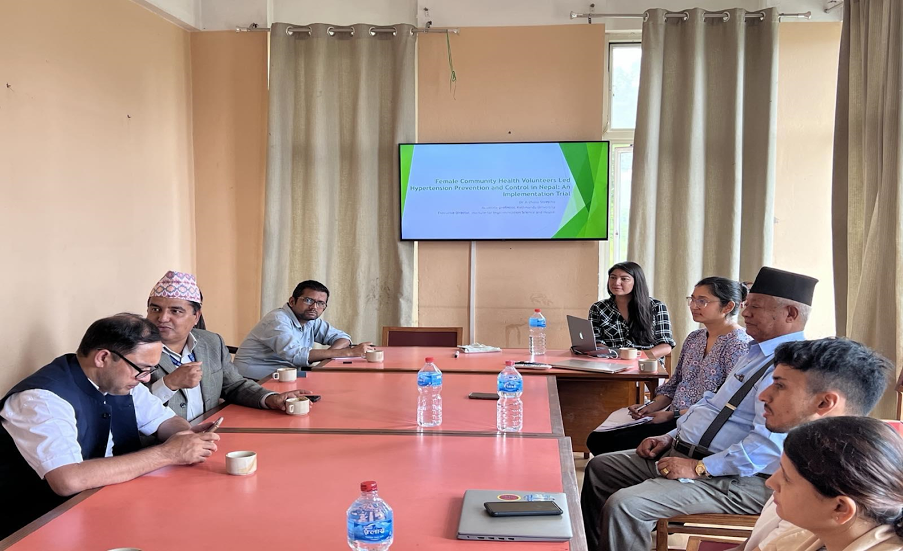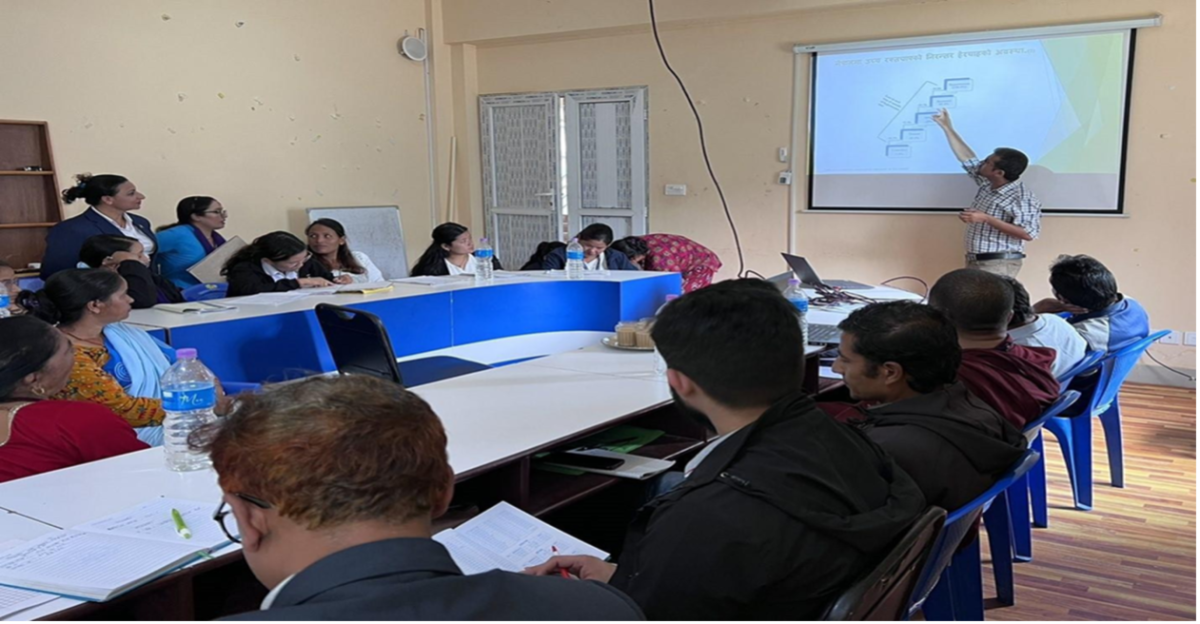World Health Organization
HLM4 Political Declaration on NCDs and Mental Health adopted
Meaningful Engagement of People with Lived Experiences
16 Dec 2025
World Health Organization | 25 Jun 2024
Nepal faces a growing hypertension crisis. Roughly one in four adults in Nepal experience hypertension and almost half of those affected are unaware of their condition. Despite the country adopting improved hypertension diagnosis and management through the WHO Package of Essential Non-Communicable Diseases (PEN) interventions, limited human resources, lacking medication, and insufficient training remain multiple barriers to implementing effective care.
To address these challenges, the Institute for Implementation Science and Health (IISH) in Nepal, in collaboration with WHO’s Department of Noncommunicable Diseases, Rehabilitation and Disability, the Alliance for Health Policy and Systems Research, the WHO Nepal Country Office and Dhulikhel Hospital are currently conducting an implementation research project in Namobudha Municipality, Kavrepalnchowk district. The project is supported by the Norwegian Agency for Development Cooperation.
Involving 14 health facilities and over 80 female community health volunteers (FCHVs), the study explores how FCHVs can engage with hypertension prevention and control efforts across Nepal. This task-sharing approach aims to strengthen primary health care and improve health system efficiency, particularly by directly engaging and linking communities with healthcare providers. In Nepal, FCHVs have traditionally been involved with delivering preventive and promotive maternal and child health services. As part of this study, they are expanding their roles to health education and counselling for hypertension and measuring blood pressure, supporting the current primary health care delivery system. Similar approaches have shown promising results in other countries, and engaging community health workers has been identified as an underexplored yet promising approach for redistributing tasks in Nepal.
A cluster randomised controlled trial involving some 795 participants will test the acceptability and feasibility of this approach among FCHV, health workers and patients. Data will be gathered through quantitative assessments and qualitative insights; the project started in September 2023 and is set to be completed by December 2024.

From the onset of the study, the research team widely engaged stakeholders in adopting, adapting, implementing, and delivering the intervention. Consultations were held with the WHO Country Office, the Ministry of Health and Population, the Epidemiology and Disease Control Division, the Nepal Health Research Council, local municipality health offices, healthcare providers, as well as patients. An inception meeting in October 2023 addressed anticipated challenges, such as specific training needs for FCHVs, and training materials were developed based on these discussions.
During the implementation phase, consultations with ward chiefs and health coordinators in the Bagmati Province and Namobuddha Municipalitywere were beneficial to adapt the research plan to the local needs actors. Understanding local circumstances, such as leveraging incentives for change and respecting cultural norms, has proven another crucial element alongside implementing technical hypertension guidelines.

Initial learning from the study already informed the ongoing project. While pre-existing relationships of researchers with health workers and policymakers facilitated smoother collaboration, building new personal connections required dedicated efforts to establish trust and understanding. The necessary time and resources for this relationship building is often overlooked in other research projects.
Key considerations for the research team have been balancing scientific rigor with practical implementation, which demanded effective communication among stakeholders. Addressing hierarchies between different cadres of health workers and power dynamics among stakeholders also proved challenging. Integrating the WHO PEN model and task-sharing is a potential strategy to achieve comprehensive, accessible, and people-centred NCD services at the primary health care level.
However, ensuring the sustainability of NCD services is challenging due to limited human resources, guidelines, equipment, and medications. FCHVs require capacity strengthening and training on NCDs, and they already balance multiple tasks, including delivering other health services. Embedding implementation research within ongoing health programs also remains a major challenge. Collaborative efforts and continuous dialogue between academia, local government, and researchers can facilitate this process.
The findings of this implementation research study are expected to enhance hypertension prevention, early detection, management and outcomes in Nepal. By engaging FCHVs and promoting community involvement, the initiative is expected to improve health service accessibility and efficiency for NCDs, potentially serving as a model for other countries with similar contexts and public health challenges.
For more information, please visit the Alliance webpage here.
This country story is part of a series on implementation research projects aimed at improving integrated NCD services at the primary healthcare level.